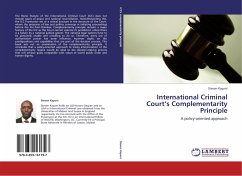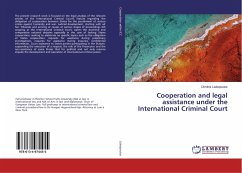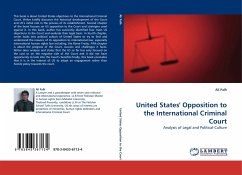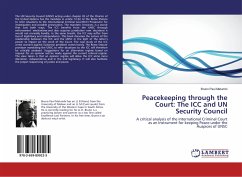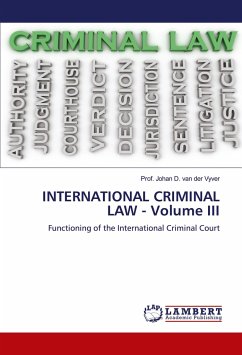The Rome Statute of the International Criminal Court (ICC) does not include issues of peace and national reconciliation. Notwithstanding this, the ICC Prosecutor sits at a critical juncture in the structure of the Court, where the pressures of law and politics converge in initiating proceedings before the Pre-Trial Chamber. Complementarity principle remains a major feature of the ICC as the Court cannot exercise its jurisdiction unless there is a failure by a national judicial system. The national legal systems have to be genuinely unable and unwilling to do so. Therefore, every use of authoritative power has some influence, however slight, on the predispositions and capabilities that are part of the decision process. This book sets out an examination of the complementarity principle. It concludes that a policy-oriented approach to treaty interpretation of the complementarity regime would be ideal to the decision-making process that will achieve goals compatible with values of world public order and human dignity.
Bitte wählen Sie Ihr Anliegen aus.
Rechnungen
Retourenschein anfordern
Bestellstatus
Storno

